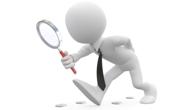Market Data

February 17, 2017
EUROFER Expects Moderate Growth in 2017
Written by Sandy Williams
EUROFER, the European Steel Association, recently released its Economic and Steel Market Outlook report for 2017-2018. The Association is expecting steel demand to continue its recovery in 2017 and 2018 but is concerned about the rise of unfairly traded imports.
Apparent steel consumption stabilized in the second half of 2016 after rising 3 percent year over year in the first half. For the entirety of 2016, steel consumption rose by 1.8 percent.
Domestic shipments fell 2 percent y/y in 2016 as imports surged, taking market share.
EUROFER Director General Axel Eggert said, “Total imports rose by more than 9% in 2016, hitting a multi-year peak. For the fourth year in a row, imports grew more strongly than the actual steel market in the EU and yet again absorbed the modest increase in demand. In the second half of 2016, imports accounted for 25% of the EU market.”
In 2016, China, Russia and South Korea together accounted for 51 percent of flat product exports to the EU. Turkey, Russia, Ukraine and Belarus exported to the EU 56 percent of long products.
“EU producers will remain vulnerable to unfair imports entering the EU market. Elementary problems such as global excess capacity and government subsidisation remain a threat for the global steel market balance. Without structural solutions at a global scale this will encourage the persistence of over-production and as a response will trigger non-WTO compliant protectionist measures and trade diversion,” said EUROFER in its report.
Sentiment High But Growth to Be Moderate
Economic sentiment at the end of 2016 rose in the EU to its highest reading since 2007. Most economic surveys showed growth at the end of the year despite domestic and external uncertainties.
New investment is considered the key for potential growth in the steel industry, said EUROFER in the report. Stronger global growth in 2017 and a weaker euro should support EU exporters this year. However, domestic demand is still challenged by economic, political and policy uncertainty, especially Brexit, and may dull investor enthusiasm.
Overall EUROFER said “investment will continue to grow only moderately, outpacing GDP growth, but still at a relatively slow rate for a recovery phase.” There will be shift from efficiency investment in machinery and equipment to one of expansion. Public and private construction investment is expected to benefit from stronger demand for housing and increased activity in non-residential and infrastructure construction. Investment is expected to grow 2.1 percent in 2017 and 2.4 percent in 2018.
Economic Risks
EUROFER says the biggest risk to the EU will be from politics and the exit of the United Kingdom. Concern remains that populist party gains could encourage other nations to withdraw from the EU. Voter discontent and nationalism could affect the “unity and speed of decision making both at the national and the EU level and as such seriously undermine the proper functioning of the EU.”
The refugee crisis is also taking a toll on the EU as the refugee deal with Turkey falters. Turkey agreed to take refugees back and hold them until they are formally assigned resettlement in Europe but dissatisfaction with the deal may cause its termination. The result could make the EU nations more divided on how to handle the influx of refugees.
The Trump administration has been moved to the forefront of political risks as European leaders evaluate proposed policies and inflammatory rhetoric from the president. According to EUROFER, “The risk is that the expected stance on protectionism will lead to isolationism; this would most certainly jeopardise a rebound of the global economy.”
Conclusion
EUROFER is expecting competitive pressures in the international markets for steel products will remain high for now.
“Although the global economy is showing the first signs of a mild recovery in 2017 and 2018, and as a consequence, a slight recovery of global steel demand is to be expected, without the necessary supply-side measures competitive pressures on the global steel market will remain extremely fierce.”







